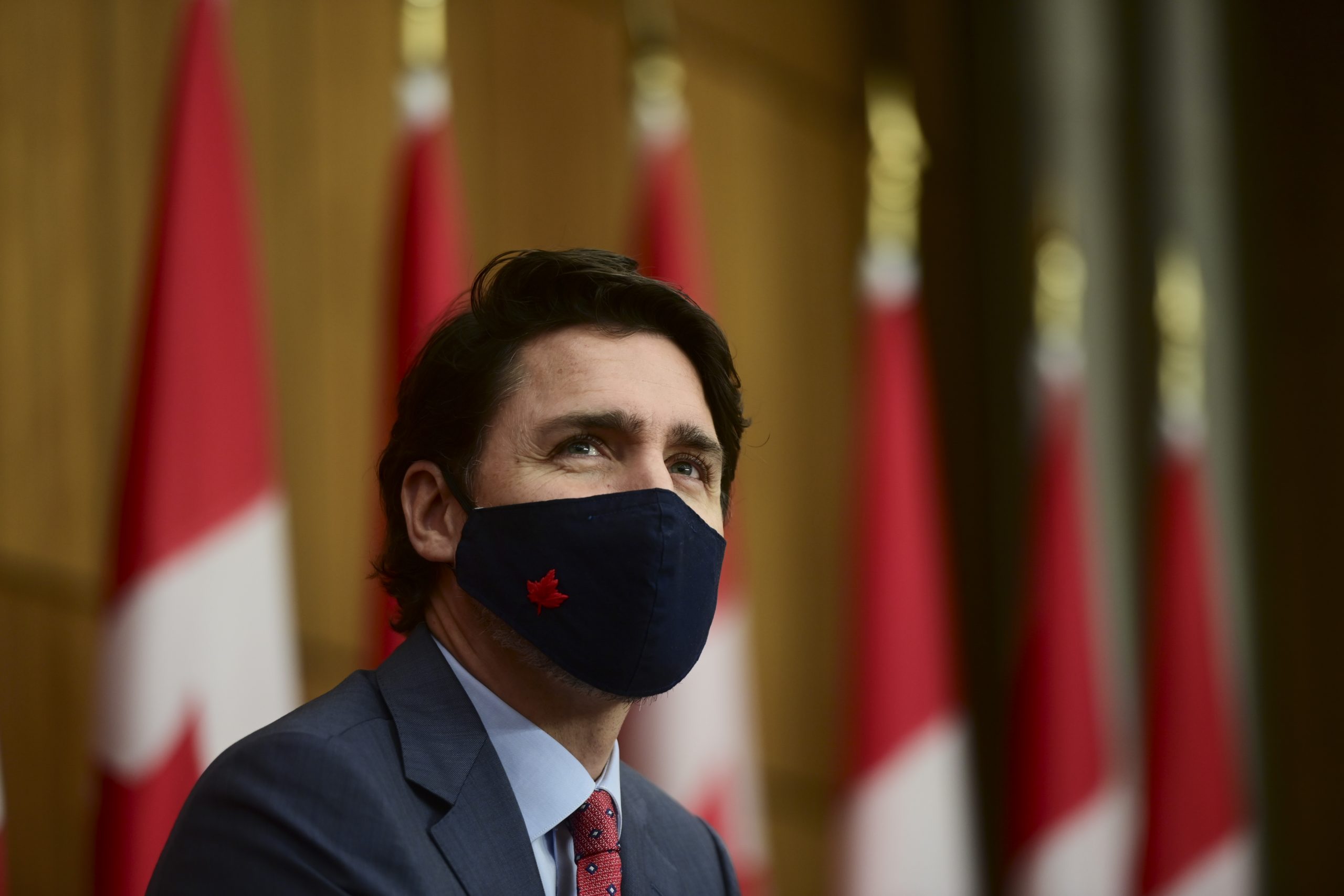OTTAWA — Prime Minister Justin Trudeau and other members of his cabinet are meeting behind closed doors to discuss Canada’s response to a new strain of COVID-19 in the United Kingdom.
Federal Health Minister Patty Hajdu revealed the discussions in a message on Twitter this afternoon as a number of European countries closed their borders with the UK because of the new strain, which is allegedly more contagious.
Trudeau’s office later confirmed the meeting of the so-called Incident Response Group.
France, Belgium and the Netherlands are among the countries that have imposed travel bans to keep the strain from spreading.
Bloc Quebecois Leader Yves-Francois Blanchet is calling for Ottawa to follow their lead and suspend flights from Britain.
The Trudeau government did not respond to questions from The Canadian Press about whether Canada was considering a travel ban.
This report by The Canadian Press was first published Dec. 20, 2020.
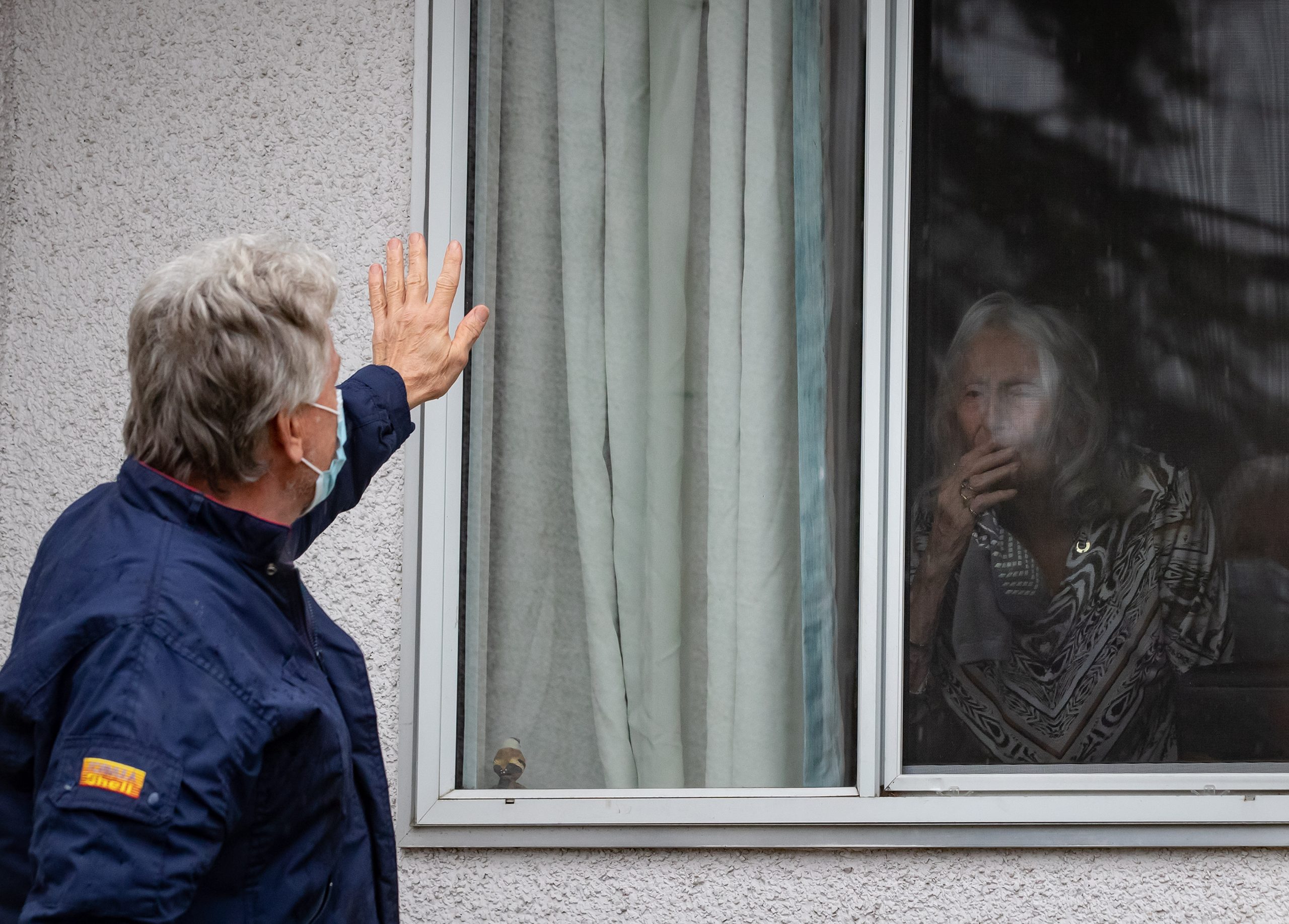
The Ford government announced it is launching what it calls one of the largest recruitment and training drives in the province’s history to deliver improved care for seniors in Ontario’s long-term care homes.
On Thursday, Premier Doug Ford and Dr. Merrilee Fullerton, Minister of Long-Term Care, said the province is investing up to $1.9 billion annually by 2024 and 2025 to create more than 27,000 new positions for personal support workers, registered nurses, and registered practical nurses in long-term care.
“We want more people working in long-term care to love what they do and thrive in their careers,” said Premier Ford.
“That’s why our new staffing plan will pursue innovative partnerships, like the one between George Brown College and the Rekai Centres, and more training opportunities for future nurses, personal support workers, and health care staff, so they can take pride in what they do and provide the care our loved ones need and deserve.”
Included as part of the plan, Ontario will accelerate and expand education and training in order to train the tens of thousands of new staff that will be required. This includes four hours of personal care per day for each resident.
They also announced the goal to improve working conditions for staff by coordinating with long-term care employers to increase full-time employment.
In late November, the Ford government received an open letter from over 4,000 loved ones with family members in long-term care homes across Ontario demanding immediate action from the province’s top officials to improve the quality of homes.
Families have said they want Bill-195 completely abolished, which allows long-term care homes to deploy untrained staff to any position they find reasonable, along with a complete phase-out of for-profit LTC’s.
Advocacy groups have accused the Ford government of introducing legislation that would make it significantly harder for residents and families to hold long-term care homes liable for failing to protect them during the COVID-19 pandemic.

In the province’s latest weekly epidemiological update, Ontario recorded a drop in new COVID-19 cases among residents at long-term care homes.
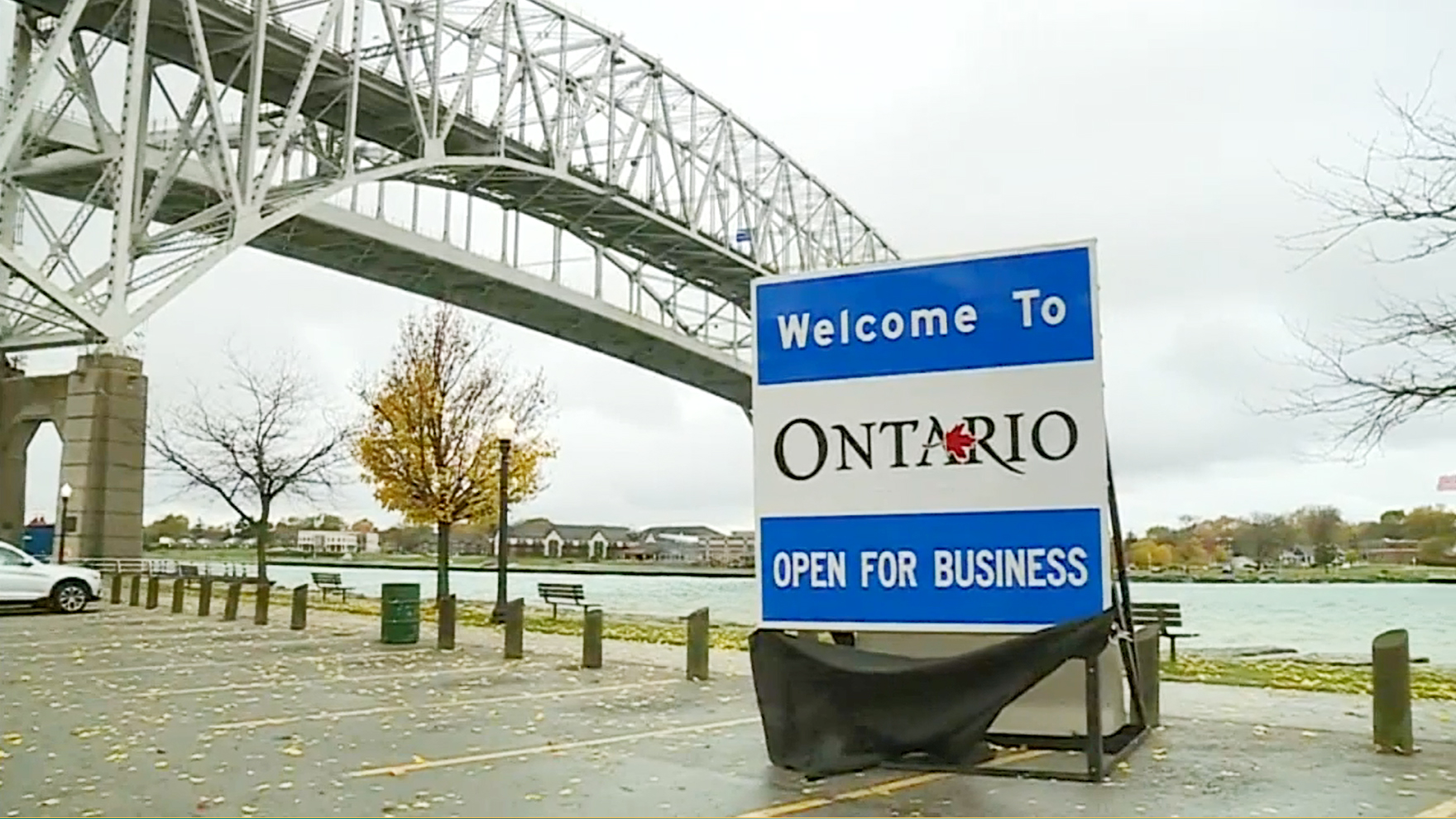
Ontario’s minister of tourism says the provincial government is creating a tax credit to help reinvigorate the travel industry in the wake of COVID-19.
Lisa MacLeod says that her ministry is in discussions with the finance ministry about the logistics but that it will be a 20 per cent return on every dollar spent.
She says that $150 million has been set aside to pay for the tax credit designed to encourage people to travel within Ontario.
The tax credit announcement was part of an ambitious white paper MacLeod unveiled today to help stimulate tourism, sports, and cultural industries in Ontario.
She also says that the provincial government will give an additional $100 million in funding to the Ontario Trillium Foundation, with a focus on community-based non-profit organizations.
MacLeod also outlined plans to redevelop Ontario Place along Toronto’s waterfront.
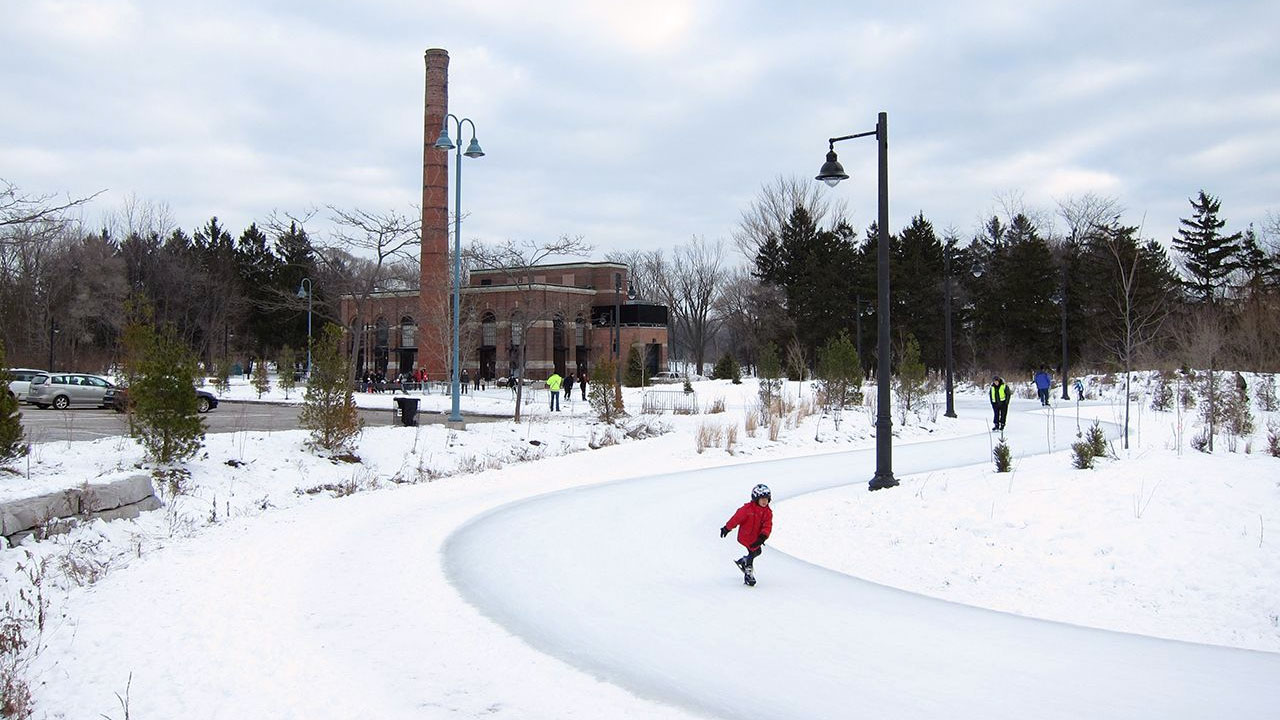
The City of Toronto has announced all their planned holiday camps and winter instructional programs have been cancelled due to COVID-19.
The camps were expected to begin on Dec. 21 to align with the winter break for schools. Just over 700 people had signed up for the camps at this point.
The city’s Learn-to-Skate, which had close to 450 registrations, and Instructional Ski programs have also been cancelled.
Registration had not yet begun on the ski programs.
Residents who registered for camps or programs will be issued an automatic refund.
City staff were able to run summer camps through their CampTO programming with COVID-19 measures in place, but the city says Toronto’s overall case numbers and daily case counts are much higher now.
Toronto is also reviewing operations at the Centennial Park and Earle Bales Park ski and snowboard centres and working to determine whether the ski hills will be opened.
More information on whether the city will be offering winter recreation programming is expected to be shared in January.
According to the province, Toronto recorded 737 new cases of COVID-19 on Thursday, and the region remains in the Grey-Lockdown category of Ontario’s COVID-19 response framework.
Mayor John Tory, along with other GTA mayors, have been calling for additional restrictions over the winter holidays.
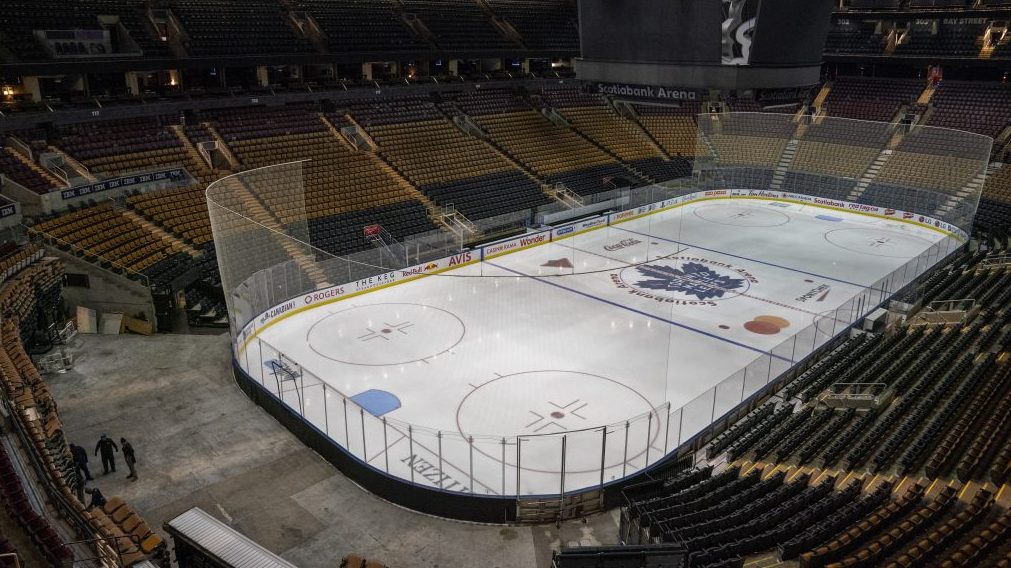
As the NHL continues to work through discussions with five different provincial health authorities about its plans to stage the upcoming season, a fallback option looms in the background.
The possibility of playing entirely in the United States.
Sources say that’s the likely outcome if agreements can’t be reached to make the all-Canadian Division a reality for 2020-21.
While there’s nothing concrete to indicate that the necessary government bodies won’t eventually sign off on the NHL’s plans, that had yet to happen as of late Thursday afternoon.
The NHL would prefer to have each of its seven Canadian teams based out of its own city and arena for a 56-game regular season. The travel would be limited to within the country and would therefore be unaffected by any border issues.
However, the plan requires approval from health authorities in Quebec, Ontario, Manitoba, Alberta and British Columbia. They need to be comfortable with the league’s protocols, which have been an ongoing point of discussion with the NHL Players’ Association.
Should that fail to happen, the NHL is willing to have the Canucks, Flames, Oilers, Jets, Maple Leafs, Senators and Canadiens play out of the U.S., if necessary.
That would follow what has happened in other sports. MLB’s Toronto Blue Jays were forced to play home games out of Buffalo last summer while the NBA’s Toronto Raptors have relocated to Tampa for the upcoming season.
On Thursday, Ontario’s minister of sport said the provincial government is examining how a Canadian division in the NHL might work.
Lisa MacLeod said that discussions about the league’s return-to-play plan are happening at Ontario’s public health table with the province’s chief medical officer of health, as well as officials from Toronto and Ottawa.
MacLeod said that she expects to join those conversations in the next few days, as will her federal counterpart Steven Guilbeault.
“In terms of (the NHL’s) direct proposal, I believe I’m going to be briefed on that in the next day or so,” said MacLeod.
MacLeod said she spoke to the Toronto Maple Leafs on Wednesday and is scheduled to again on Friday. She said she has also had conversations with the Ottawa Senators over the course of the COVID-19 pandemic.
However, the Ontario Hospital Association today asked the Ontario government for a strict four-week lockdown in regions with high rates of COVID-19 positivity that would include Toronto and Ottawa.
Also, the mayors of Toronto and Mississauga, Ont., both said on Wednesday that they want a strict four-week lockdown to begin over the winter holidays to slow the rapid spread of COVID-19 in the GTA.
Files from The Canadian Press were used in this report

French President Emmanuel Macron has tested positive for COVID-19, the presidential Elysee Palace announced on Thursday.
It said the president took a test “as soon as the first symptoms appeared.” The brief statement did not say what symptoms Macron experienced.
It said he would isolate himself for seven days. “He will continue to work and take care of his activities at a distance,”it added.
It was not immediately clear what contact tracing efforts were in progress. Macron attended a European Union summit at the end of last week, where he notably had a bilateral meeting with German Chancellor Angela Merkel. He met Wednesday with the prime minister of Portugal. There was no immediate comment from Portuguese officials.
Macron on Wednesday also held the government’s weekly Cabinet meeting in the presence of Prime Minister Jean Castex and other ministers. Castex’s office said that the prime minister is also self-isolating for seven days.
The French presidency confirmed that Macron’s trip to Lebanon scheduled for next week is being cancelled.
Macron and other government officials repeatedly say that they are sticking to strict sanitary protocols during the pandemic, including not shaking hands, wearing a mask and keeping distance from other people.
Macron is following French health authorities’ recommendations that since September have reduced the self-isolation time from 14 days to seven. Authorities said at the time that this is the period when there is the greatest risk of contagion and that reducing it allows better enforcement of the measure.
French health authorities argued this week that the 14-day quarantine was not well-respected by many in the country who considered it too long.
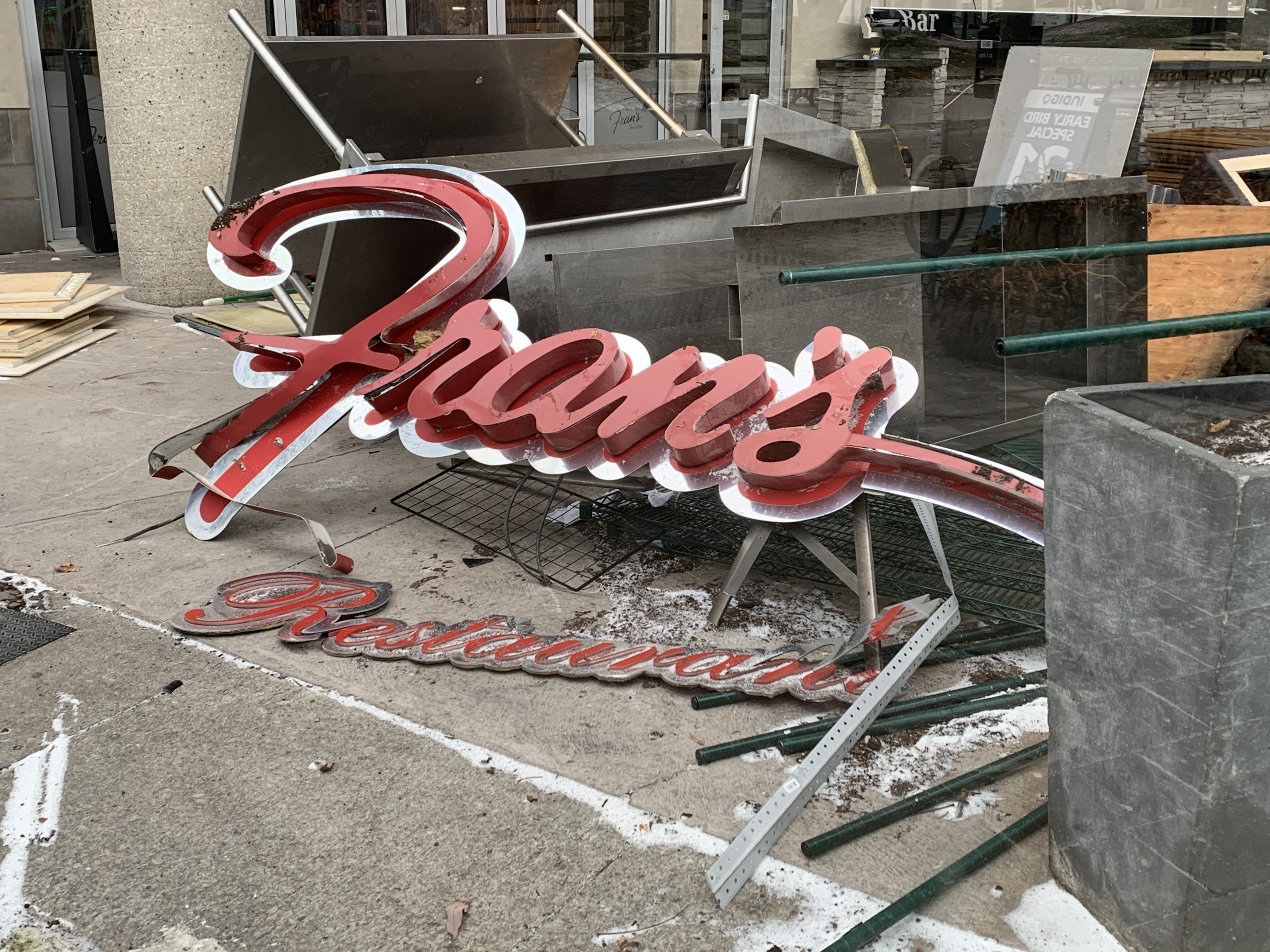
The owner of Fran’s Restaurant says it will be permanently closing its Yonge and Front streets location at the end of this year.
Robert Kim, whose family now owns the business which opened its first restaurant in 1940, says the combination of an “uncooperative landlord” and the current COVID-19 measures preventing restaurants from operating has forced them to shutter the location as of December 31st.
Kim says they were in the process of negotiating a new lease when COVID hit earlier this spring, forcing them to table those talks and move forward on a month-to-month basis. He says that while the property management were supportive during the initial lockdown phase, things changed as the second wave forced the business to close once again.
“I think what small businesses are looking for is a more timely application of the programs that [government’s] put in place to support small businesses, such as rent relief,” said Kim. “Announcing it is one thing but when you lift the moratorium on evictions, but don’t release rent relief, it provides a massive loop hole for landlords to evict their tenants. Unfortunately, that is what happened to us.”
Kim says the last two weeks have been difficult for his family, as all the hard work and sweat equity they put into making the location a success falls by the wayside.
“We’re all in a tough spot here,” explained Kim. “We’re in the middle of a pandemic, there’s so many moving parts and there’s a lot of risks and its tough no matter how you look at it, whether you’re a landlord, a tenant. I think that the best that we can do is to continue to support small businesses, shop local.”
Kim says despite the closure, they will be looking for alternate locations and hopefully expand “in the near future.”
Francis “Fran” Deck opened the first restaurant at Yonge and St. Clair, described as a “modest, ten-stool diner” that offered comfort food classics such as burgers, homemade apple pie and all-day breakfast that was available 24-hours a day, seven days a week.
Kim’s family took over the College Street location in 1997 from a group of investors who had bought the family-owned chain following Deck’s death in 1976. Then in 1998, the family acquired the rest of the Fran’s Restaurant company.
Originally opened in 2010 across from the Meridian Hall, the closure of the Yonge and Front restaurant will leave just two locations open – one at Yonge and College and the other at Victoria and Shuter streets.
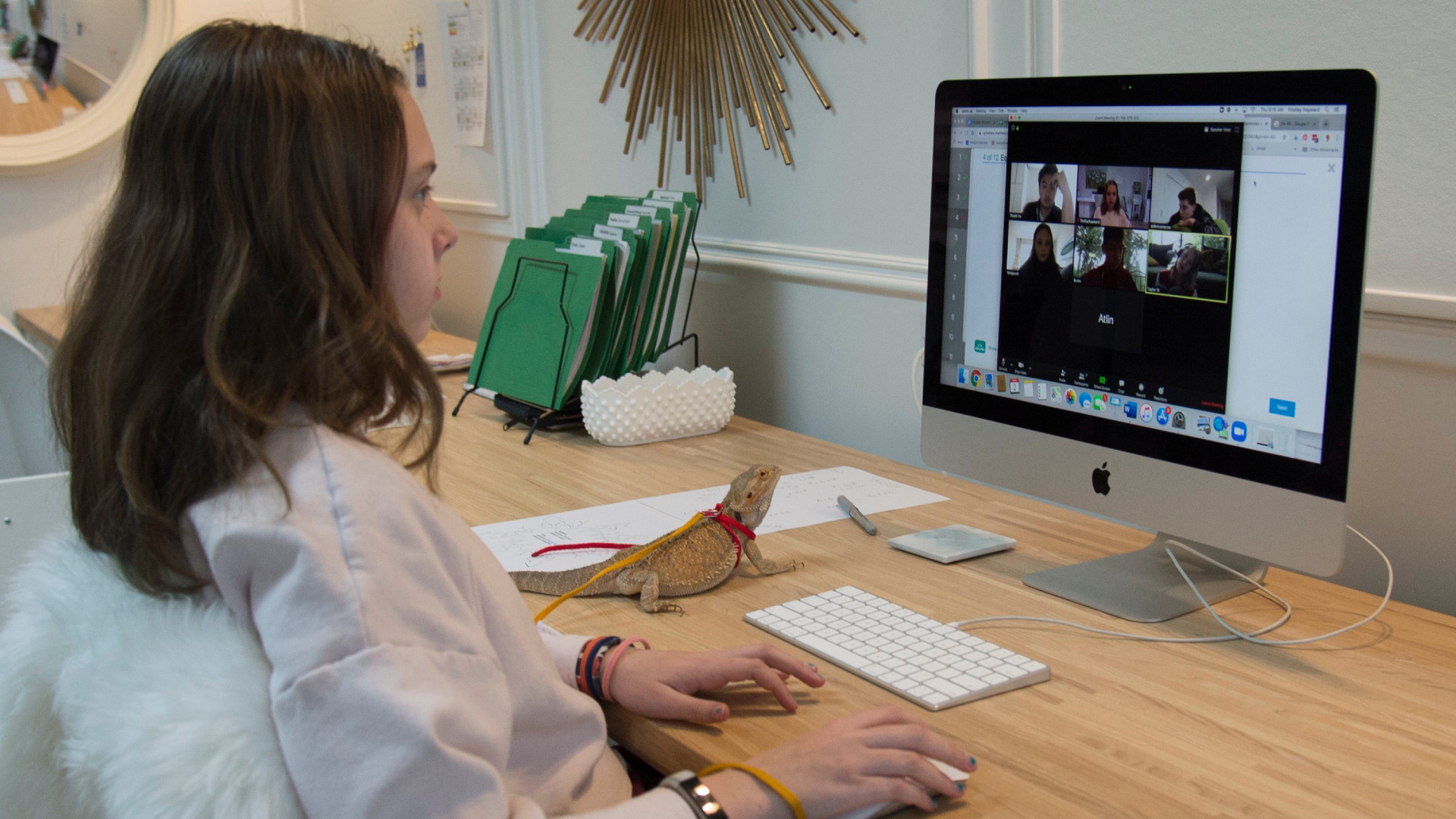
The province is preparing for the possibility that the Christmas break for in-person learning in schools may be extended in the new year.
In a memo issued to school boards, Education Minister Stephen Lecce says while the transmission of COVID-19 in schools has remained “low” they should prepare for the possibility of remote learning beyond January 4.
“We are recommending that boards encourage students and staff to take home any materials that they may require for remote learning before they leave school for the holiday period so that we can continue to be ready for all scenarios,” reads the memo.
Lecce further recommends that school boards continue to ensure that students and families are provided the resources required to successfully participate in remote learning, including ensuring the availability of remote learning devices for all students.
The memo points out that the public health environment in the province is evolving rapidly and they will continue to monitor the COVID-19 situation, including increasing hospitalizations and patients in intensive care.
Last month, Lecce said there was no need to extend the Christmas break, pointing out Ontario schools have been “remarkably successful at minimizing outbreaks” during a second wave that has seen record-breaking daily counts, most notably in Toronto and Peel Region.
“We have consulted with the Chief Medical Officer of Health as well as the Public Health Measures Table and have determined that an extended winter holiday is not necessary at this time, given Ontario’s strong safety protocols, low levels of transmission and safety within our schools,” he said back on November 18.
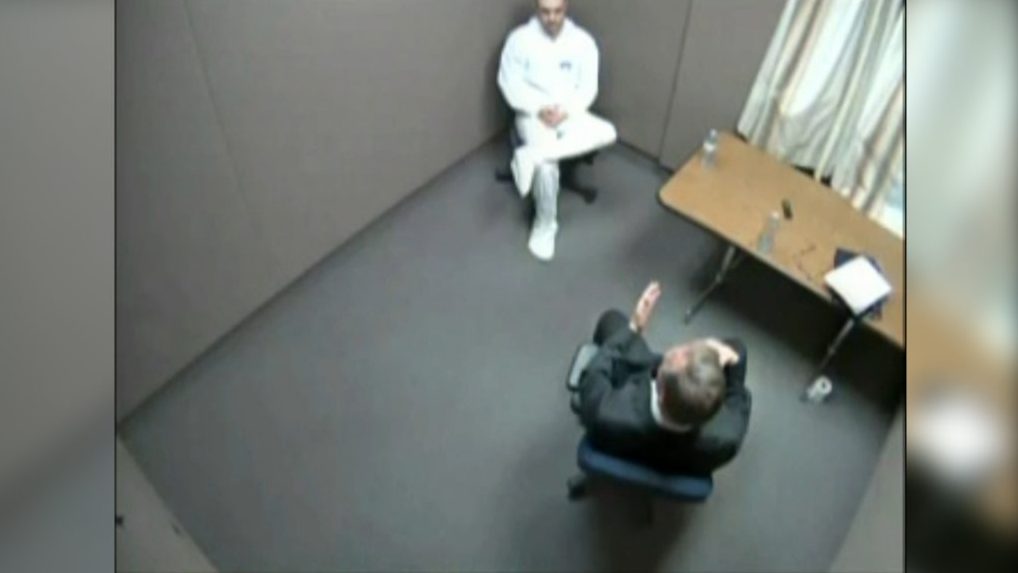
Warning: Details of the trial are graphic in nature, discretion is advised
The defence is set to give its closing arguments Thursday at the trial for the man who killed 10 people in Toronto’s van attack.
Alek Minassian has pleaded not guilty to 10 counts of first-degree murder and 16 of attempted murder.
CityNews reporter Adrian Ghobrial is covering the trial, follow his tweets below:
The defence argues Minassian is not criminally responsible for his actions on April 23, 2018, due to autism spectrum disorder.
The prosecution argues the 28-year-old from Richmond Hill, Ont., knew what he was doing was wrong.
Minassian has admitted to planning and carrying out the attack.
The only issue at trial is his state of mind at the time of the killings.
RELATED: What would a not criminally responsible verdict mean for Toronto van attacker’s future?
At the judge-only trial, Justice Anne Molloy heard testimony nearly exclusively from forensic psychologists and psychiatrists. The experts had interviewed Minassian and administered tests to understand his state of mind.
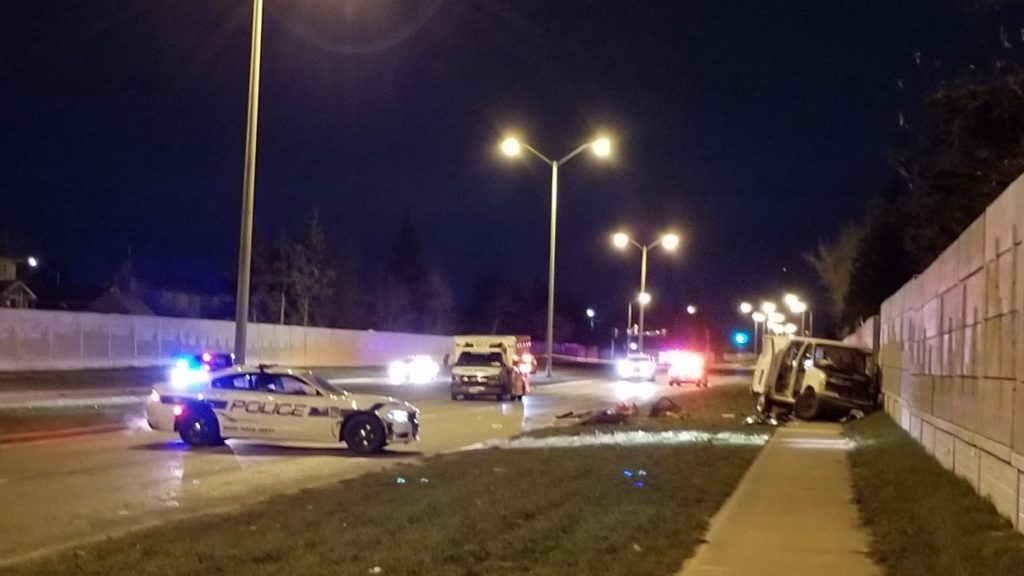
The province’s Special Investigations Unit is investigating a crash in Brampton that sent one person to hospital by air ambulance.
According to police, officers were involved in the pursuit of a stolen vehicle on Williams Parkway, west of Kennedy Road, just after midnight on Wednesday.
Police believed the driver of the vehicle may have also been impaired.
No details on the crash have been released but images from the scene show damage to the front end of a Peel police cruiser and a van crashed into the concrete barriers that line the road.
The driver of the van was airlifted to hospital with life-threatening injuries.
There has been no word on any other injuries.
Police have also closed off a second scene at Kennedy Road north of Church Street.









